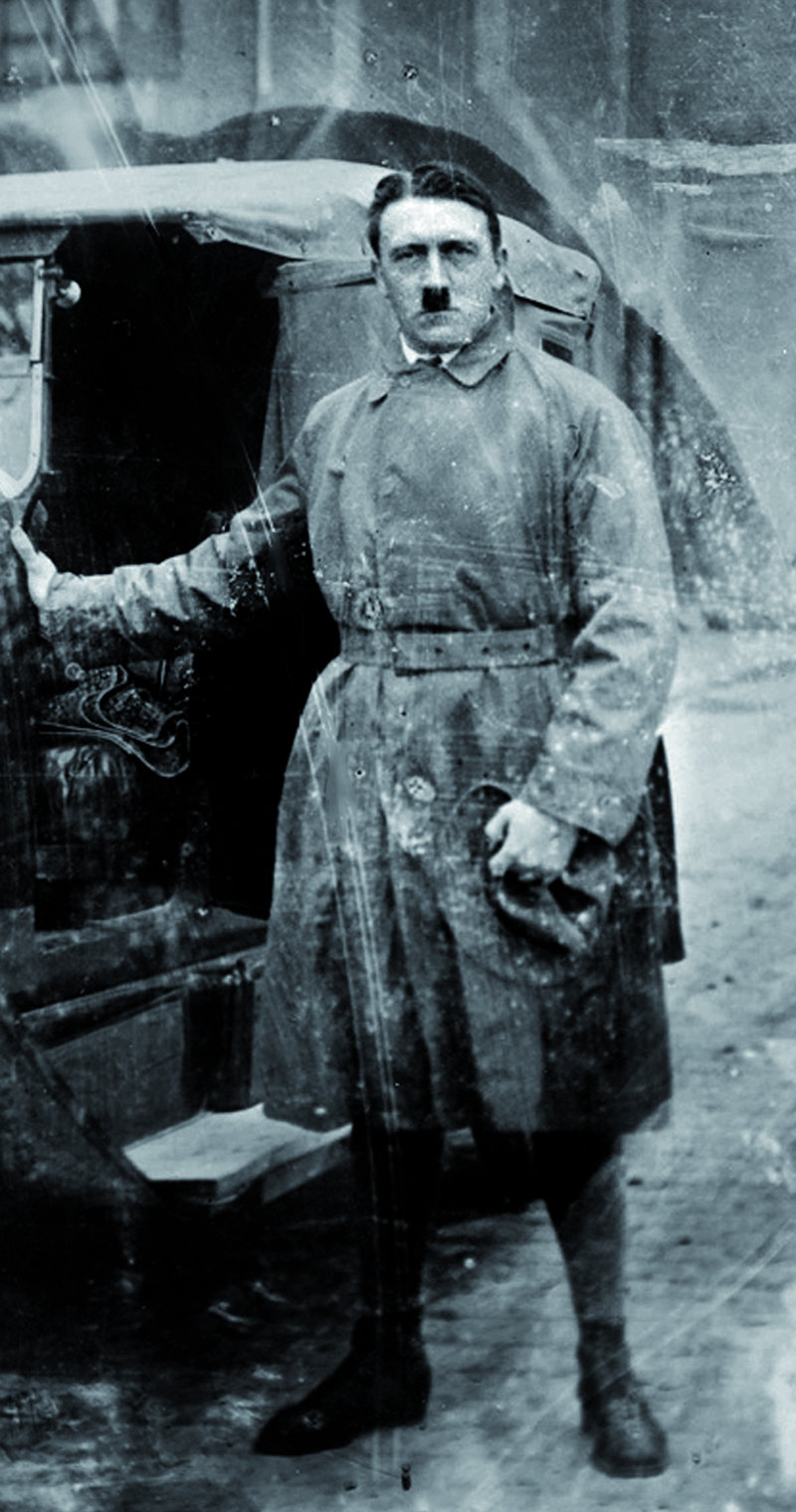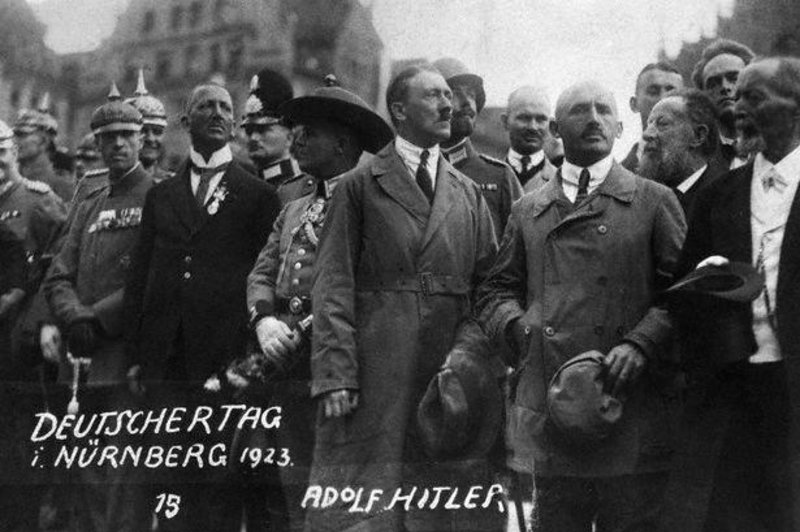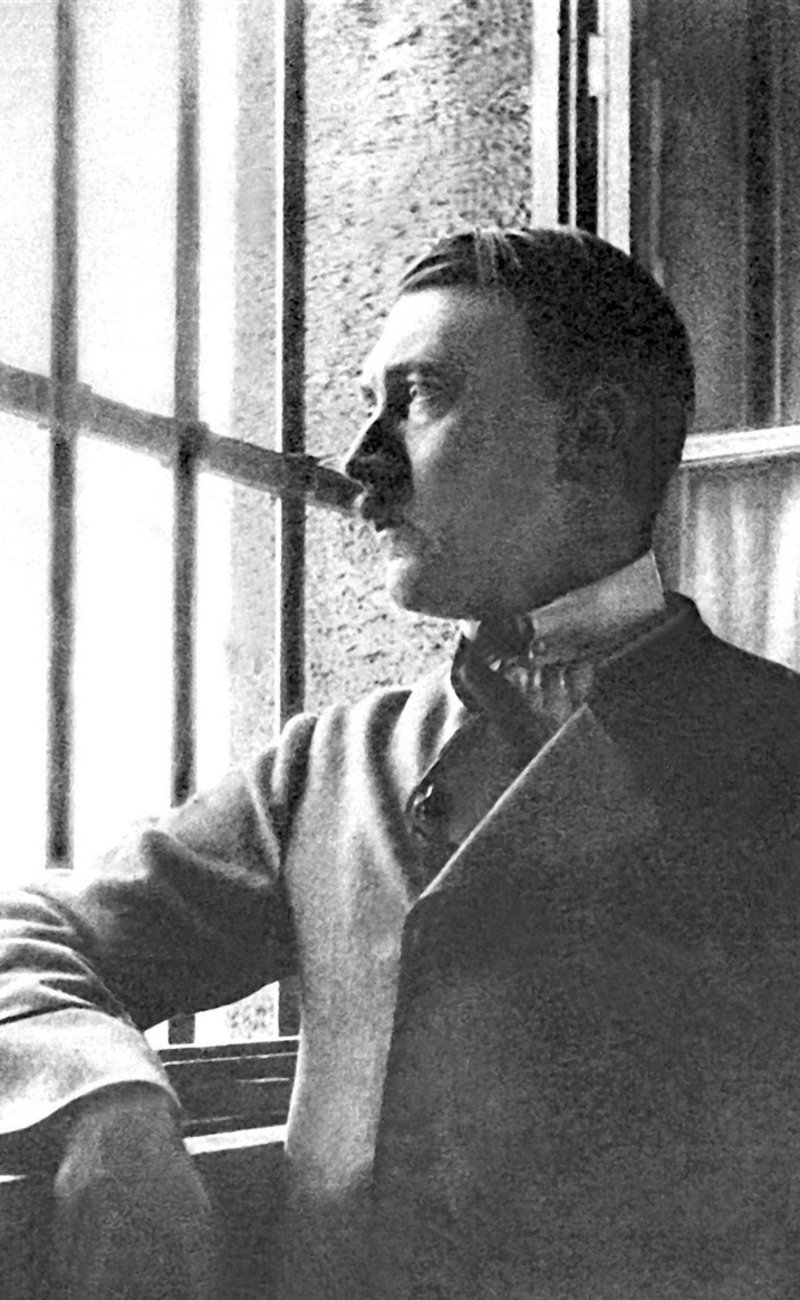Interview with the devil
On November 24, 1923, ’La Veu de Catalunya’ published an interview that its correspondent in Germany, Eugeni Xammar, conducted with the future ’Führer’, Adolf Hitler
Journalist Eugeni Xammar interviewed Adolf Hitler at a particularly important time, just a few days before the failed Munich putsch that made him “dictator of Germany for one night” took place. However, the interview was not published until two weeks after that, a circumstance most likely conditioned by the political affairs of the time. Xammar’s portrayal of the future dictator is stark and full of irony. The report was entitled “Adolf Hitler, or foolishness unleashed”, and from the very beginning defines the Nazi leader as: “The most substantial simpleton that we have had the opportunity to meet since we have been on this planet.” At that time, the Catalan journalist was 35 years of age, but he had already seen the world and had a considerable enough knowledge of it. Hitler was not the first public figure he had met. Despite the aforementioned definition, Xammar was quick to predict that Hitler was destined to have “a brilliant career”.
Unfortunately his prediction came true, and Hitler’s popularity even grew during the trial he faced a few months later, as well as after his short stay in prison, which lasted nine months. In the interview, La Veu de Catalunya’s correspondent outlined a brief description of a character who had already aroused his interest in previous articles.
Prior to that interview, Xammar had only seen Hitler in a photo that had spread throughout Germany, but it was as if he had known him “all his life”. Through that image, the journalist described him as a person with “a self-satisfied look, very characteristic of dictatorial personalities”. Xammar expressed doubts about the financing of the Nazi party, and was convinced that “he promised the workers the moon in order to tame them” and that the military would let him do what he wanted “to get them out of a fix”.
When he first met Hitler in person, Xammar added very few details to this intimal profile and paid more attention to the elements of Nazi iconography, such as the Germanic cross embroidered on his cuff and the “military greeting that involved hitting the heels of the shoes together”, a gesture made by all members of the National Socialist party. The interview was held at the head offices of the Völkische Beobachter, the newspaper that represented the National Socialist party.
Hatred of the Jews
At the very beginning of the interview, Hitler joked about the interviewers’ nationality, pouring out hatred against anything that was not German. Apart from Xammar, Josep Pla, then a correspondent for La Publicitat, was also present. Whether out of conviction or forced courtesy, Hitler stated that “the Spaniards in Bavaria have all doors open to them.” And, surprisingly, then added: “They’re the only foreigners who can say that.” Among those who were unwelcome he highlighted the Jewish people, one of the terrible obsessions of the National Socialists. Hitler did not take long to unleash his bile against the Jews: “The Jewish question is a cancer that is gnawing away at the German national organism. A political and social cancer. Fortunately, political and social cancers are not an incurable disease. They can be surgically removed. If we want Germany to live, we must eliminate the Jews.”
The interviewer was logically shocked by these blunt statements and did not hesitate to ask the National Socialist leader how the “elimination of the Jews” was going to be carried out. Hitler expressed his desire to kill them all “in one night”, before immediately adding: “That would be the perfect solution, of course, and if this could happen the salvation of Germany would be assured. But it is not possible. I have studied every angle of it and it’s not possible. The world would jump all over us, instead of thanking us, which is what it should do.”
If we note the words Xammar picked up on at that moment, the “solution” that the National Socialists proposed for the Jewish question was expulsion. Aware of who he was dealing with, Hitler was referring to Spanish history and the measures ordered by the Catholic Monarchs in 1492. The Catalan journalist was surprised by this reference, knowing it had turned out to be a counter-productive measure, and interrupted Hitler, which upset him.
The correspondent concluded the report with some personal opinions, which, in hindsight, are hilarious: “His ideas about the Jewish problem are clear and quite pleasant.” In hindsight, however, they were also frightening, especially now that we know that a few years later they were translated into the Nazis’ systematic extermination of the Jewish people. And, unfortunately, the world did not jump all over them.
feature
Under suspicion
In an article written almost 20 years ago, journalist Lluís Permanyer expressed doubt that the interview with Hitler had taken place. He put it in these terms: “I was surprised that neither [Xammar nor Pla] ever spoke of it again. And it is very strange to me that Xammar did not comment on the experience in Germany in his memoirs. Neither can we find a single line about it in the complete works of Pla. I refuse to believe that they both forgot that they had spent five minutes alone and face to face with the madness of the magnetic gaze.” However, the text of the interview is fully credible and lends no weight to the hypothesis of it having been a journalistic invention.
The most intelligent man
“The most intelligent man I know,” is how writer Josep Pla described him, acknowledging that Xammar had taught him “more than all books put together.” Eugeni Xammar (Barcelona, 1888 – L’Ametlla del Vallès, 1973) is one of the greatest journalists in Catalan history. Arriving in Berlin in the winter of 1922, he bore witness to a Germany troubled by defeat in the Great War and social instability.






